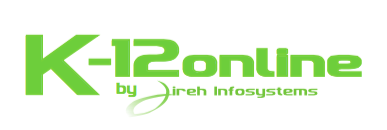Does your school have a conscience? Is it aware of its own conduct, intentions and character? Everyday decisions can have tremendous and often unseen potential to do good or harm to students, colleagues, the community, society and the planet. Often, the most important decisions and actions seem routine at the time they’re made. But have you ever stepped back to look at the impact of those decisions?
Think about the values, social responsibility and sustainability lessons being taught. A school’s responsibility is to prepare future leaders with tools to successfully confront social and environmental issues, as well as ethical and economic challenges.
Schools that do this well, do so because the lessons provided that lead to one’s conscience are discovered, not taught. These schools deliver an ongoing values development and self-discovery experience that is internalized by students and colleagues alike.
Through a constant process of action learning and unconventional classroom techniques, self-discovered values become more resilient than those that come from a book. Once these values are discovered, it leads to inheritance, and ultimately creates opportunities for an individual to do good.
Take, for example, a simple lesson such as recycling and reducing your carbon footprint. Activities such as online registration, which helps to reduce paper consumption, composting programs, and service to the community, can help a school transform itself into a place that develops socially responsible young adults.
In 2007, Ethical Culture Fieldston (ECF), an independent school located in New York, joined the Green Schools Alliance, a global network whose mission is to empower K-12 schools to lead the movement toward environmental sustainability, and pledged to reduce its carbon footprint by at least 30 percent in five years and achieve carbon neutrality (i.e., a net-zero carbon footprint) by 2020. In April 2013, ECF learned that it had fulfilled the pledge and had reduced its carbon emissions by 31 percent by reducing its paper consumption, electricity, fuel, and solid waste. Other factors that helped lower the school’s carbon emissions included the expansion of composting efforts and retrofitting all cafeteria kitchens with more energy-efficient appliances. According to Sightlines, a facilities management firm, ECF has the lowest carbon emission rate per student and per gross square foot among peer institutions.
Stepping out of routine and starting with a simple act like online registration can help change the culture of a school. Schools that wish to build socially responsible attitudes and skills in students must commit to this task by rethinking school culture, designing programs, and integrating technologies that enable parent involvement and action learning for students. A comprehensive emphasis on developing social responsibility will enable students to make a difference in their schools, families, and communities—and will churn out young people with the skills and empathy that this disrupted world needs.
What are your plans for the next school year? How do you foresee the year in terms of values, social responsibility and sustainability? Each summer is an opportune time to look ahead and develop an implementation plan for developing your school’s conscience.

